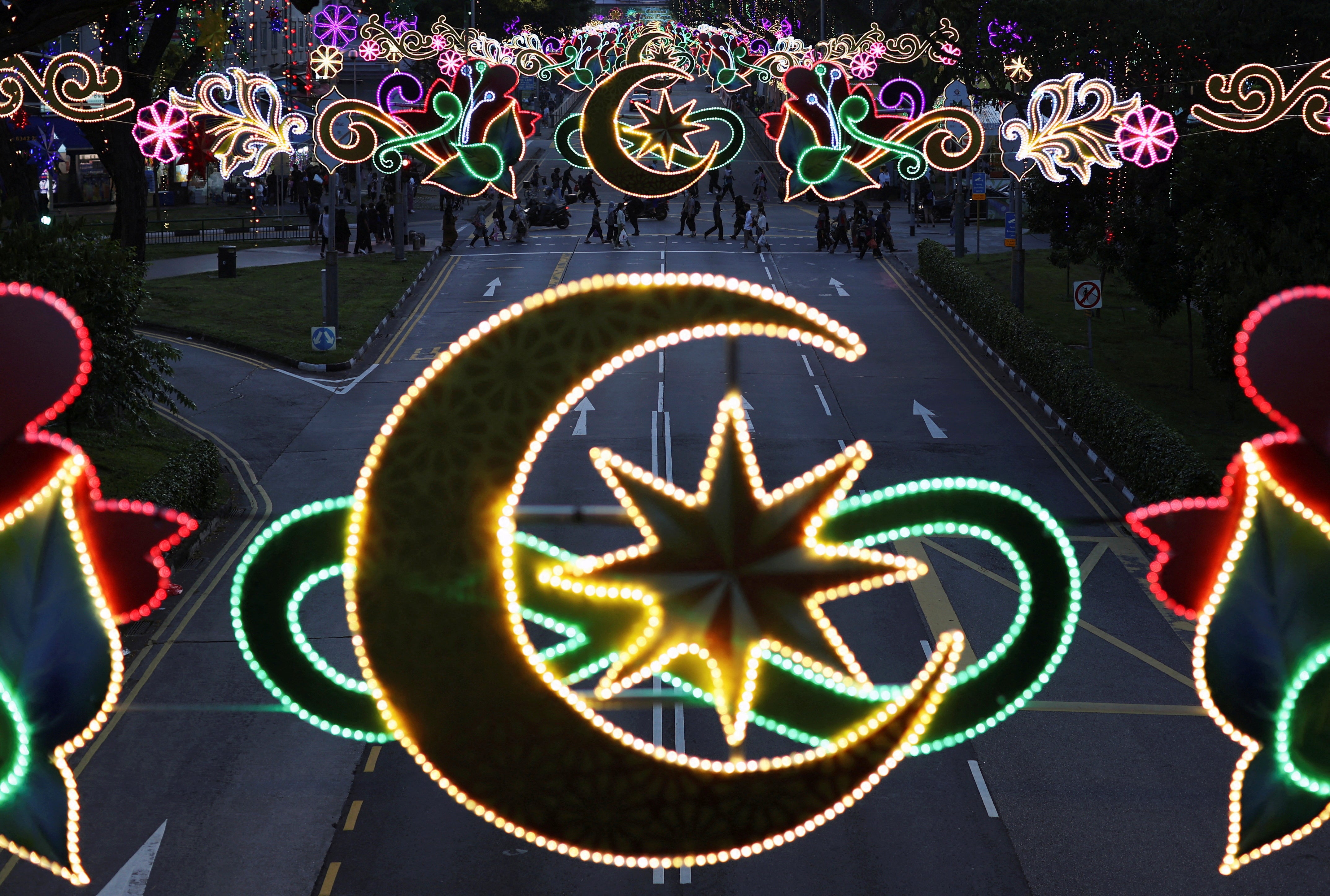Moments of joy and reflections on sadness: This is what Eid means to me
Being deprived of food and drink from sunrise to sunset can be mentally and physically exhausting. At these times, I am reminded of people who have it more difficult – of the 811 million people who go hungry every day


Today, Muslims around the world – including more than four million Muslims in the United Kingdom – celebrate Eid al-Fitr: the “festival of breaking the fast” marks the end of fasting during Ramadan after the sighting of the new crescent moon.
My memories of Eid are one of a grand affair: an elaborate feast, often featuring spiced meat on a steaming bed of rice, crispy samosas and honey-soaked baklava; new tailored outfits; older relatives handing out Eidyah – a gift of new banknotes – to children; “Eid Mubarak” greetings filling the room.
At such joyous moments, I cannot help but reflect on the past month. Being deprived of food and drink from sunrise to sunset can be mentally and physically exhausting. Maintaining energy without a sip of water becomes even more arduous as Ramadan progresses. At these times, I am reminded of people who have it more difficult – of the around 811 million people across the world still who go hungry every day.
These times also evoke extraordinary examples of the power of community: British Muslims donating around £150m in charity during the Ramadan month alone; hosting one of the largest interfaith iftar dinners on the steps of the Royal Albert Hall; non-Muslim friends joining in the fasting experience to better understand what millions worldwide are undertaking.
For 14 centuries, the recurring rhythm of Ramadan brought both challenges and rewards. Islam teaches that with adversities come renewed strength and joy. Out of difficulty can arise accomplishment and hope. “Indeed, with hardship comes ease,” states the Quran (94:5).
With the end of Ramadan’s month of fasting comes Eid al-Fitr’s feast. With deprivation comes an appreciation of the gift of food and drink. With darkness comes light. The first light of Quranic revelation came to Prophet Mohamed only after his retreat inside a dark secluded cave on Mount Hira. Ramadan commemorates the ninth month of the Islamic calendar, when the first verses of the Quran were revealed.
All over the world, celebrations honour resilience after periods of adversity. Sikhs, Hindus and Jains celebrate the victory of light over darkness during the five-day festival of Diwali. Lent’s season of fasting and penitence preludes Easter’s celebrations of spring and renewal in Christianity.
To keep up to speed with all the latest opinions and comment sign up to our free weekly Voices Dispatches newsletter by clicking here
The Jewish holiday of Passover tells the story of hope and triumph over antisemitism. Buddhists release lanterns into the spring night sky during Wesak to celebrate the Buddha’s birthday and death, after which the Buddha is said to have reached his final state of enlightenment – or Nirvana.
Beyond faith, nature offers lessons of triumph over difficulty. Seasons remind us that the world moves on. It promises that even the harshest winter will not last forever and spring will arrive. For thousands of years, winter solstice holidays observed the return of light after the moment darkness was at its longest. Nature’s ethereal festival of lights – the aurora borealis – illuminates most vividly on the clear black skies above the high-latitude regions.
Igniting the black canvas anew with such radiance, the northern lights dance with hope. Eid lanterns, Christmas lights and Hanukkah candles all glimmer with this same hope – that what lies ahead of today’s adversity is a brighter future.



Join our commenting forum
Join thought-provoking conversations, follow other Independent readers and see their replies
Comments